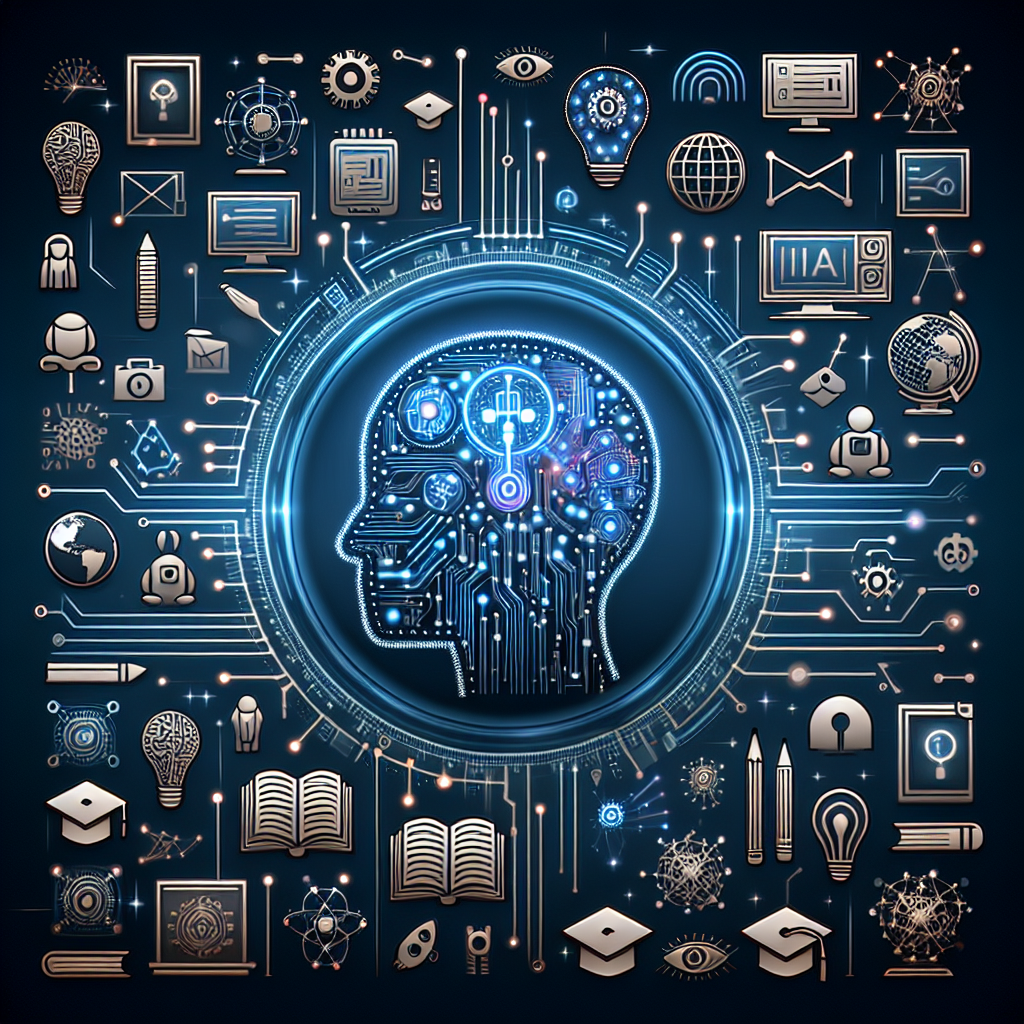The Future of AI Software in Education
Artificial Intelligence (AI) has the potential to revolutionize education by providing personalized learning experiences, automating administrative tasks, and improving student outcomes. AI software is already being used in classrooms around the world to assist teachers, engage students, and provide real-time feedback. As the technology continues to advance, the future of AI in education looks promising.
Personalized Learning
One of the most significant benefits of AI software in education is its ability to provide personalized learning experiences for students. By analyzing a student’s performance, behavior, and preferences, AI algorithms can recommend customized learning paths, resources, and activities. This allows students to learn at their own pace, focus on their individual strengths and weaknesses, and receive targeted support when needed.
AI-powered adaptive learning systems can also track students’ progress in real-time and adjust the difficulty level of tasks accordingly. This ensures that students are always challenged but not overwhelmed, leading to improved learning outcomes. Additionally, AI can provide immediate feedback to students on their work, helping them to identify and correct mistakes more quickly.
Automating Administrative Tasks
AI software can also streamline administrative tasks in education, freeing up teachers and administrators to focus on more important aspects of their work. For example, AI-powered chatbots can handle routine inquiries from students and parents, such as scheduling meetings, providing information about courses, and answering frequently asked questions. This reduces the burden on school staff and improves efficiency.
AI can also automate grading and assessment processes, saving teachers time and allowing them to spend more time on teaching and mentoring students. By using AI to analyze student work, educators can gain insights into students’ progress, identify areas of improvement, and tailor their teaching strategies accordingly.
Improving Student Outcomes
By providing personalized learning experiences and automating administrative tasks, AI software in education has the potential to improve student outcomes. Research has shown that students who receive personalized instruction perform better academically, are more engaged in learning, and have higher levels of motivation. AI can help to identify at-risk students early on and provide targeted interventions to support their learning.
Furthermore, AI can help to bridge the gap between students with different learning abilities, backgrounds, and needs. By providing customized learning resources and support, AI software can ensure that all students have access to high-quality education and opportunities for success.
The Future of AI in Education
As AI technology continues to advance, the future of AI software in education looks promising. Here are some of the key trends and developments to watch out for in the coming years:
1. Personalized Learning Experiences: AI will continue to play a crucial role in providing personalized learning experiences for students. With the help of AI algorithms, educators can create custom learning paths, adapt content to individual needs, and provide targeted support to students.
2. Virtual Reality and Augmented Reality: AI-powered virtual reality and augmented reality technologies will enable students to immerse themselves in interactive learning experiences, simulations, and virtual classrooms. This will enhance student engagement, improve retention, and facilitate hands-on learning.
3. Data Analytics and Predictive Modeling: AI will be used to analyze vast amounts of data collected from students, teachers, and educational systems to identify patterns, trends, and insights. By using predictive modeling, educators can anticipate student needs, predict performance, and make informed decisions about teaching strategies.
4. Collaborative Learning and Social Interaction: AI software will facilitate collaborative learning experiences by connecting students, teachers, and experts from around the world. AI-powered tools will enable real-time collaboration, peer feedback, and social interaction, fostering a sense of community and engagement among learners.
5. Lifelong Learning and Continuous Education: AI will support lifelong learning by providing personalized recommendations for professional development, upskilling, and reskilling. AI-powered platforms will offer adaptive learning resources, micro-learning modules, and personalized coaching to help individuals stay relevant in a rapidly changing world.
FAQs
Q: How is AI software currently being used in education?
A: AI software is currently being used in education to provide personalized learning experiences, automate administrative tasks, improve student outcomes, and enhance teaching and learning processes.
Q: What are the benefits of using AI software in education?
A: The benefits of using AI software in education include personalized learning experiences, improved student outcomes, streamlined administrative tasks, and enhanced teaching and learning processes.
Q: Will AI software replace teachers in the future?
A: AI software is not meant to replace teachers but to support them in their work. While AI can automate certain tasks and provide personalized learning experiences, teachers play a crucial role in guiding, mentoring, and inspiring students.
Q: How can educators prepare for the future of AI in education?
A: Educators can prepare for the future of AI in education by familiarizing themselves with AI technology, exploring new teaching strategies and tools, and embracing lifelong learning. By staying informed and adaptable, educators can leverage AI to enhance their teaching practices and improve student outcomes.
In conclusion, the future of AI software in education looks promising, with the potential to revolutionize teaching and learning processes, improve student outcomes, and provide personalized learning experiences. By leveraging AI technology, educators can create engaging, interactive, and effective learning environments that cater to the diverse needs of students. As AI continues to advance, it is essential for educators to stay informed, adaptable, and prepared for the changes and opportunities that lie ahead.

